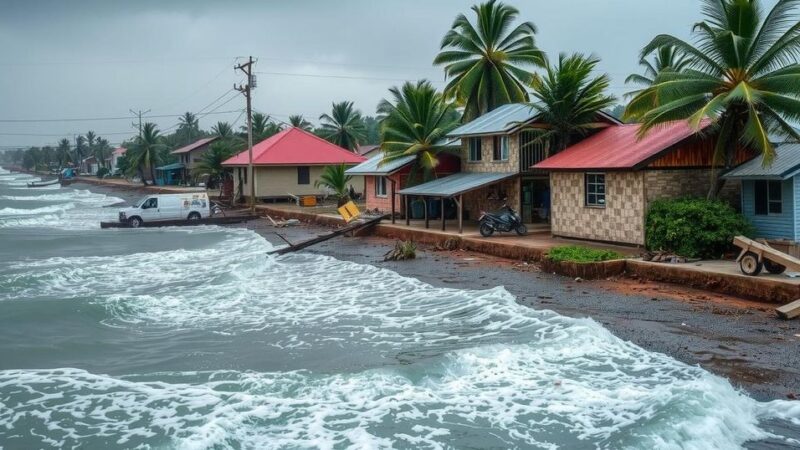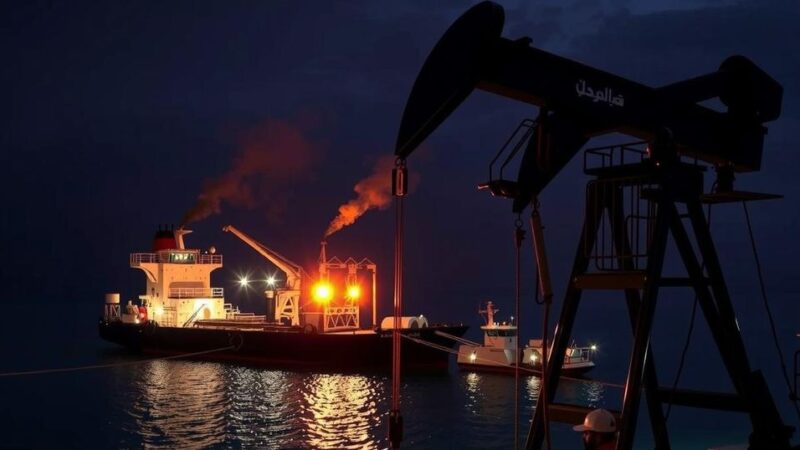Tensions are surging in the Horn of Africa, where Egypt, Somalia, and Eritrea are on the verge of forming a collective security alliance against Ethiopia. The recent diplomatic meeting in Asmara aims to confront Ethiopia’s controversial agreement with Somaliland, which provides Ethiopia landlocked access to the Red Sea. The implications of these alliances could lead to serious instability and potential proxy conflicts reminiscent of the Cold War era, affecting regional dynamics significantly. This unfolding situation necessitates careful scrutiny from global powers due to its potential ramifications on international peace and stability.
The Horn of Africa is experiencing escalating tensions as Egypt, Somalia, and Eritrea contemplate a collective security alliance against Ethiopia. Following a pivotal diplomatic meeting on October 10, 2024, in Asmara, Eritrea’s capital, leaders of these nations discussed the formation of an alliance that may involve economic sanctions and military cooperation directed towards Ethiopia. This shift in geopolitical alliances comes amidst a backdrop of severe conflict in the region, including a wearisome civil war in Ethiopia and violent strife in Sudan, which has exacerbated regional instability. The recent deal struck between Ethiopia and Somaliland, a self-declared independent region, has heightened the stakes, as it grants Ethiopia port access to the Red Sea, provoking military and territorial concerns from surrounding nations. The security arrangements complicate matters further, with Egypt aligning itself against Ethiopia due to longstanding disputes over the Grand Ethiopian Renaissance Dam and water access from the Nile. As the situation unfolds, extremists like Al Shabab in Somalia pose threats to governance, contributing to the region’s volatility. Meanwhile, Eritrea’s isolation presents a danger that it may abandon peace agreements and renew hostilities with Ethiopia, potentially culminating in proxy conflicts reminiscent of the Cold War era. The global community must take heed of these developments, as the Horn of Africa stands on the precipice of a potentially deadly conflict that could have widespread repercussions. As alliances form and tensions mount, the possibility of a pronounced conflict remains imminent, drawing concern from international observers.
The Horn of Africa has long been a region of profound geopolitical significance, characterized by intricate relationships and historical rivalries. Ethiopia, being the most populous country in the region, has played a crucial role in regional dynamics, particularly with its recent conflicts leading to a humanitarian crisis. Its civil war has resulted in immense loss of life and displacement. Concurrently, neighboring nations like Somalia and Eritrea have their own complexities, with internal conflicts exacerbating regional instability. The formation of a coalition between Egypt, Somalia, and Eritrea marks a notable departure in diplomatic relations, primarily in response to Ethiopia’s controversial agreements with Somaliland, which threatens the fragile balance in the region. These circumstances reveal a broader struggle over territorial sovereignty and resource access, underscoring the need for attentiveness to the evolving political landscape.
In conclusion, the Horn of Africa is undergoing a significant geopolitical transformation characterized by increasing tensions and shifting alliances. The potential alliance among Egypt, Somalia, and Eritrea against Ethiopia represents a critical juncture that could lead to heightened military confrontation and humanitarian crises. As regional actors continue to maneuver in response to Ethiopia’s strategic agreements and internal conflicts, the possibility of a prolonged and devastating conflict looms large. The international community must acknowledge and address the risks inherent in these developments to forestall further escalation.
Original Source: www.orfonline.org







